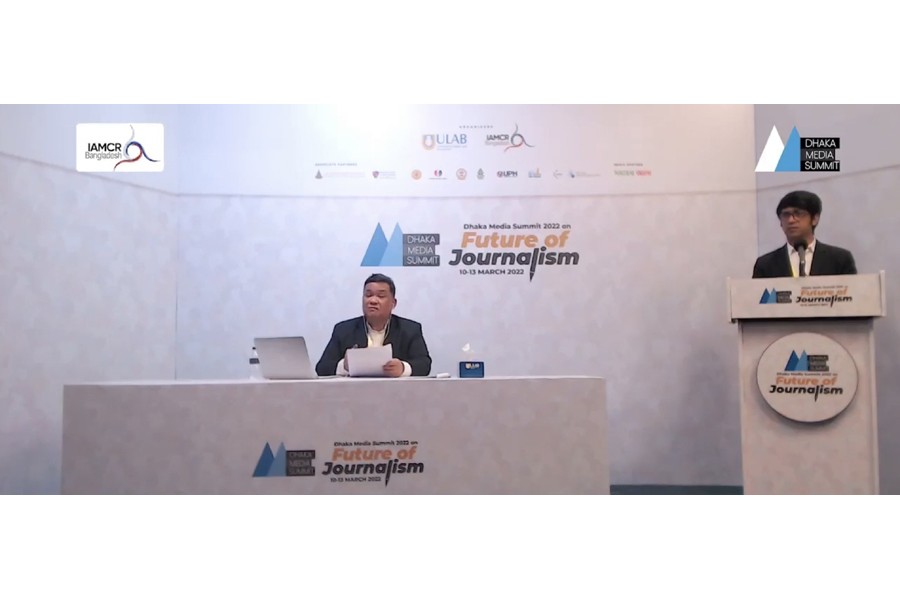A four-day summit on the future of journalism began at the Department of Media Studies and Journalism at the University of Liberal Arts Bangladesh on Thursday, says a press release.
ULAB Vice Chancellor Professor Imran Rahman inaugurated the event titled "Dhaka Media Summit 2022” jointly organised by the Department of Media Studies and Journalism (MSJ) of ULAB, and the International Association of Media and Communication Research (IAMCR) Bangladesh.
MSJ Department Head Professor Jude William Genilo, IAMCR President Nico Carpentier, and Bangla daily Prothom Alo Special Correspondent Rozina Islam attended the inaugural session.
Speaking on the occasion, Professor Imran Rahman said, “We are trying our best to promote the best quality journalism in the country by preparing skilled future journalists at the Department of Media Studies and Journalism.”
Meanwhile, IAMCR President Nico Carpentier said journalism is a multidimensional profession. There is not one form of journalism. There are multitude forms of journalism.
“We are at the juncture of the transformation of the profession. So, we have to be prepared for the future using our past experiences.”
Addressing the session, MSJ Department Head Jude William Genilo said, “No one can say for certain how the future of journalism will unfold. More such conferences are needed to understand the future better.”
In her keynote speech, Rozina Islam said Bangladesh is a difficult place for journalism, especially for women journalists.
But Bangladesh is a place for the best journalism, she also said.
“As journalists, we must not stop. We must persist despite the countless barriers that may appear in our way,” Rozina added.
The inaugural event was followed by a session of IAMCR ambassadors from various countries on ‘Future of journalism and its implications to journalism education’, and two master classes on ‘Social media and mobile journalism’ and ‘The media-ethics cauldron: Myths, realities and futures’.
The online summit features 10 associate partners, 58 research paper presentations by researchers and academics from 10 countries, five roundtable discussions, three master classes and one book promotion.


